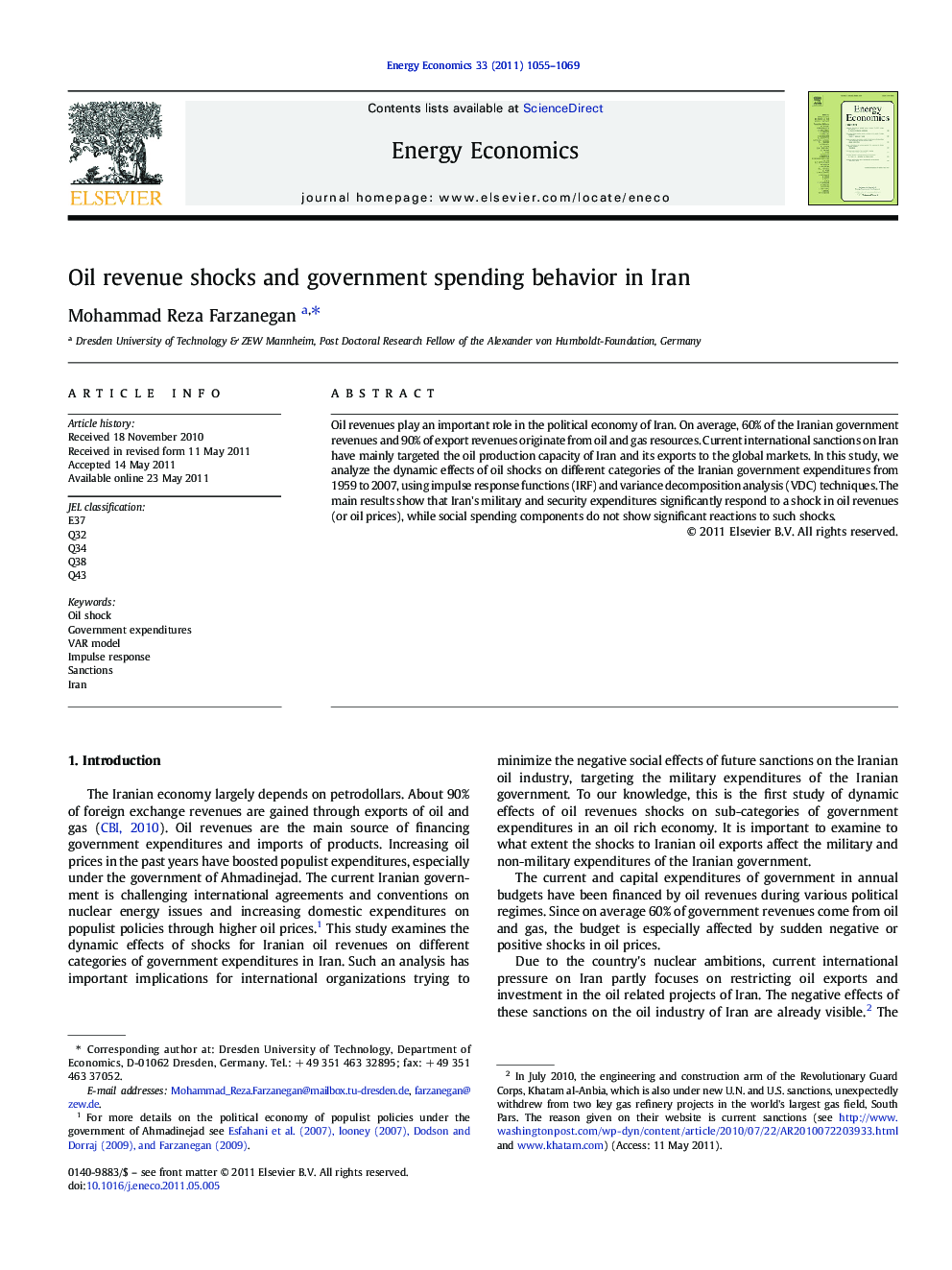| کد مقاله | کد نشریه | سال انتشار | مقاله انگلیسی | نسخه تمام متن |
|---|---|---|---|---|
| 5065653 | 1372324 | 2011 | 15 صفحه PDF | دانلود رایگان |

Oil revenues play an important role in the political economy of Iran. On average, 60% of the Iranian government revenues and 90% of export revenues originate from oil and gas resources. Current international sanctions on Iran have mainly targeted the oil production capacity of Iran and its exports to the global markets. In this study, we analyze the dynamic effects of oil shocks on different categories of the Iranian government expenditures from 1959 to 2007, using impulse response functions (IRF) and variance decomposition analysis (VDC) techniques. The main results show that Iran's military and security expenditures significantly respond to a shock in oil revenues (or oil prices), while social spending components do not show significant reactions to such shocks.
⺠We analyze the dynamic effects of oil shocks on different categories of the Iranian government expenditures from 1959-2007. ⺠Iran's military and security expenditures significantly respond to a shock in oil revenues (or oil prices). ⺠Social spending components do not show significant reactions to such shocks. ⺠Those sanctions aiming to restrict the Iranian government's oil export capacities may affect the military spending of Iran.
Journal: Energy Economics - Volume 33, Issue 6, November 2011, Pages 1055-1069